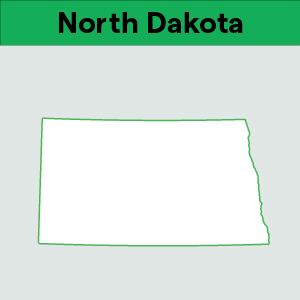Does attending a trade show create sales tax nexus?
by February 25, 2025
This blog post is about selling at trade shows. Do you sell at craft fairs or festivals? Check out our State-by-State Guide to Sales Tax at Craft Fairs and Festivals.
Trade shows play an important role for businesses. They provide the opportunity to connect with potential customers and industry professionals. While there are many benefits to attending trade shows, it’s important for businesses to be aware of how these events can impact sales tax compliance. Attending a trade show can be a way to inadvertently establish sales tax nexus for your business in a new state.
There isn’t much case law on the subject of trade shows and nexus, so it’s mainly up to each state to determine what activities constitute sales tax nexus. There are logical pros and cons that states seem to consider when deciding this issue:
Collecting more sales tax – The most obvious “pro” is that many states are broke and searching for sources of revenue everywhere they can. Collecting sales tax from out of state sellers is obvious “easy money.” This is because once you have sales tax nexus in a state, you have sales tax nexus for all of your business sales, not just the sales that take place at the trade show you happened to attend. Not paying attention to each state’s ruling on trade show nexus could become a costly mistake.
Encourage trade show attendance – On the other hand, many pro-business groups take the stance that heavily enforcing sales tax nexus among trade show attendees discourages attendance and the subsequent boost a state’s economy otherwise receives from having companies from all over converge on the state for a trade show. After all, who wants to be on the hook for sales tax compliance all year just because you attended a 5-day trade show?
Because of these two competing factors, some states advocate a “middle way.” They don’t consider a trade show to constitute sales tax nexus as long as your company:
a.) Only attends for a short period of time and/or
b.) Does not make sales at the actual trade show itself
Of course, as it goes with almost anything sales tax-related, every state is different.
States and trade show nexus
Not all states make specific statements when it comes to trade shows and sales tax nexus. Below is a list of states that have made a ruling. These laws are subject to change at any time, so for up-to-date information contact the state’s department of revenue. (This post was originally posted in March 2015 and updated April 2016 to add new guidance from Washington state.)
California – Any out-of-state business whose sole activity in California is engaging in convention or trade show activities for fewer than 15 days and whose gross income from that activity is less than $100,000 is not considered to have nexus with the state for sales and use tax purposes. California also considers it okay to make sales at a trade show, but you must apply for a temporary California sales tax permit and collect sales tax on those orders.
Connecticut – An out-of-state company that is not otherwise engaged in business in Connecticut will not be subject to tax based on trade show activities like displaying goods or promoting services, as long as the aggregate number of days in Connecticut does not exceed 14 days, and only if no sales are made at the show. According to their wording, “any orders must be sent outside Connecticut for acceptance and fulfillment.”
Georgia – An out-of-state company will not be considered a “dealer” for sales tax purposes if its physical presence in the state is limited to participating in convention and trade show activities, provided that such activities do not exceed more than five days in any twelve-month period and the seller did not derive more than $100,000 of net income from those activities in Georgia during the prior calendar year.
Illinois – Illinois has had a fraught relationship with trade shows and sales tax nexus, issuing differing opinions over time. (Just as they do with the issue of sales tax on shipping in Illinois.) Illinois’ latest rulings on the subject are inconclusive, but they do say “[a]ny type of physical presence in the State of Illinois … .will trigger Use Tax collection responsibilities.” Illinois is also one of the more active states when it comes to trade show nexus enforcement, so use caution when attending a trade show in this state.
Kansas – According to the Kansas Department of Revenue, attending a trade show in Kansas does not create nexus as long as you do not take orders or make sales there.
Maine – Maine is one of the simpler states when it comes to trade show nexus. They state “[a]ttending trade shows, seminars or conventions in this State” does “not constitute a substantial physical presence” sufficient to create nexus.
Massachusetts – Massachusetts Department of Revenue Directive 91-3 states that a vendor soliciting at trade shows for more than three (3) days in a calendar year has nexus for sales and use tax purposes. Displaying or demonstrating products, distributing catalogs, accepting orders and otherwise promoting sales are all considered to be “soliciting.”
Michigan – Michigan Department of Revenue Administrative Bulletin 1999-1 states that out-of-state businesses may participate in trade shows for up to nine (9) days annually as long as they don’t make sales or take orders at the show.
Minnesota – In Revenue Notice No. 2000-10,129 the Minnesota Department of Revenue has taken the position that engaging in conventions or trade shows, or conducting seminars and similar events for the purpose of promoting business in Minnesota constitutes “conducting business” there and that “conducting business” in the state for at least four (4) days in a 12-month period constitutes “maintaining a place of business” in Minnesota. Because of this, on the fourth day of “conducting business” in Minnesota, an out-of-state retailer must register and begin collecting sales tax for the subsequent 12-month period
New York – The state of New York has issued several rulings that advise that merely attending or demonstrating products at a trade show in New York does not create nexus for sales tax purposes. Also, New York Corporation Franchise Tax regulations provide that participation in a trade show or shows in New York State for 14 days or less per year is insufficient to create franchise tax nexus, so long as no sales are made at the show, orders are sent outside the state for approval and fulfillment, and trade show activity is limited to displaying goods or promoting services.
Ohio – The Ohio Department of Taxation has taken the position that it will not impose use tax collection liability on out-of-state sellers that attend trade shows in the state as consumers or that participate in one or more trade shows in the state as exhibitors provided that they have no more than seven (7) instances of nexus creating activities in the state in a calendar year and do not have gross sales in the state in excess of $25,000 in the same calendar year.
South Carolina – According to a recent revenue ruling, attending a convention in South Carolina for less than 14 consecutive days will not create nexus.
Tennessee – A company is not considered to be “doing business” in the state for purposes of the Tennessee corporate excise tax solely by the presence of employees, product samples or other promotional materials at one or more trade shows, exhibits, conventions or similar events in the state for a total of not more than 20 days per calendar year.
Texas – currently has one of the most aggressive position on trade show nexus for sales and use tax purposes. In Texas, a single day of trade show activities in creates sales tax nexus for a full year following the date of trade show participation. The Texas Comptroller takes the position that anyone who participates in a trade show must collect tax on all sales to Texas customers for the next twelve months. That said, there are also exemptions as long as you are not directly making sales.
Utah – A private letter ruling concluded that a company that sent employees into the state to network and build relationships at a 10-day film festival did not create nexus. That said, this may not be conclusive in other trade show activities.
Vermont – The Department of Taxation indicated in Ruling 95-25 that limited trade show activity does not necessarily create sales tax nexus. This is another fairly inconclusive ruling that leaves room for interpretation.
Virginia – Virginia states that merely demonstrating products at a trade show does not create nexus.
Washington – Businesses can participate in one trade show per year without establishing nexus, as long as they do not make sales at the convention.
Keep in mind that just because a state isn’t on this list does not mean that they won’t consider attendance at a trade show to create sales tax nexus. In fact, since trade show nexus could potentially be a source of state revenue, some states may be hedging their bets before making a ruling on trade show attendance and nexus. Always check with a sales tax professional or a state’s department of revenue for a specific ruling when it comes to whether attending a trade show creates sales tax nexus.
Ready to automate sales tax? To learn more about TaxJar and get started, visit TaxJar.com.








